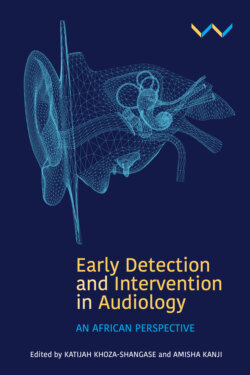Читать книгу Early Detection and Intervention in Audiology - Группа авторов - Страница 19
На сайте Литреса книга снята с продажи.
Principles for early detection of hearing impairment
ОглавлениеEHDI programmes are aimed at identifying and diagnosing hearing impairment in newborns and infants as soon as possible, as well as providing timely intervention to these individuals in order for them to reach their maximum potential (Joint Committee on Infant Hearing [JCIH], 2007). This objective is guided by a number of principles first outlined by the JCIH in 2000. In the sub-Saharan context, South Africa has taken the lead, with the HPCSAs' Professional Board for Speech, Language and Hearing Professions developing and publishing a set of guidelines that clearly highlight the principles for early detection of hearing impairment (HPCSA, 2018). Of the six EHDI principles, five are specifically related to early identification of hearing impairment:
Principle 1: All infants are afforded access to hearing screening through the use of physiological measures, with the initial hearing screening conducted by one month of age in hospital settings and six weeks of age in PHC clinic settings. Screening can be conducted in a variety of contexts such as the neonatal intensive care unit, high care ward, kangaroo mother care ward, well-baby nurseries, PHC clinics and midwife obstetric units (MOUs). The platform for screening is dependent on the health care system in each district.
Principle 2: All infants should have access to an effective referral system if they do not pass the initial screen and any subsequent rescreen. The referral system should be efficient and prompt to ensure appropriate audiological and medical evaluations in order to confirm the presence of hearing impairment. Confirmation of hearing impairment should occur by three months of age in hospital programmes and no later than four months of age in clinic-based programmes.
Principle 3: Infants who pass the initial hearing screening but present with any risk indicators for progressive, late-onset bilateral hearing impairment, other auditory disorders and/or speech and language delay should receive ongoing monitoring. This should be done by caregivers and/or primary care providers who are informed of the risks and the communication developmental milestones. Audiological monitoring protocols should be evidence-based.
Principle 4: Infant and family rights should be guaranteed through upholding ethical practice in terms of informed choice and consent, and appropriate provision of audiological screening and assessment results that are in agreement with other health care and educational information.
Principle 5: An integrated information system should be used to manage information related to hearing screening and/or any follow-up assessments. Efforts should be made to integrate this information.
These principles serve as a good foundation for ensuring the provision of efficient and integrated early detection programmes, and can also serve as a way of monitoring progress using the suggested ages for completing identification and diagnosis of hearing impairment. Their applicability to a variety of NHS contexts is key, especially for countries in sub-Saharan Africa where different levels of service delivery exist, and they can serve as a platform for early detection programmes.
